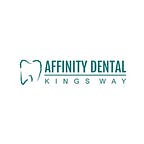Understanding Jaw Pain: Causes, Treatments, and Chewing Comfortably Again
Jaw pain, a common yet frustrating issue, can significantly impact your ability to chew, speak, and even smile. It can manifest in various ways, from a dull ache to a sharp stabbing pain, and can limit your daily activities. This article explores the different causes of jaw pain, delves into treatment options, and offers strategies for preventing future discomfort.
Unearthing the Cause: A Look at Jaw Pain Culprits
Jaw pain can arise from various underlying conditions. Here’s a breakdown of some frequent causes:
- Temporomandibular Joint Disorder (TMJ): TMJ disorders encompass a group of conditions affecting the temporomandibular joint (TMJ), the hinge connecting your jaw to your skull. TMJ dysfunction can cause pain, clicking or popping sounds in the jaw, and difficulty opening or closing your mouth.
- Teeth Grinding (Bruxism): Unconscious clenching or grinding of teeth can strain the jaw muscles and ligaments, leading to pain and tenderness in the jaw, face, and temples.
- TENSION headaches: Tension headaches, often caused by stress or muscle tension, can manifest as pain in the temples, forehead, and sometimes the jaw.
- Sinusitis: Inflammation of the sinuses can sometimes cause referred pain that feels like jaw pain, particularly in the upper jaw and cheek area.
- Dental problems: Toothaches, abscesses, or even misaligned teeth can put stress on the jaw and cause discomfort.
- Injury: A blow or trauma to the jaw can cause fractures, dislocations, or damage to the jaw joint, leading to pain and limited movement.
- Arthritis: Degenerative joint diseases like osteoarthritis can affect the TMJ, causing pain and stiffness.
Finding Relief: Treatment Options for Jaw Pain
The treatment for jaw pain depends on the underlying cause. Here are some common approaches:
- TMJ treatment: For TMJ disorders, treatments may include pain relievers, muscle relaxants, anti-inflammatory medications, mouth guards to prevent teeth grinding, physical therapy, or in severe cases, surgery.
- Stress management: Managing stress through relaxation techniques like meditation or yoga can help alleviate tension headaches and bruxism-related jaw pain.
- Treating the underlying cause: If dental problems contribute to jaw pain, addressing cavities, gum disease, or misalignment through appropriate dental procedures is necessary.
- Physical therapy: Physical therapists can teach you exercises to strengthen and stretch the jaw muscles, improve flexibility, and reduce pain.
- Heat or cold therapy: Applying a warm compress to the affected area can relax muscles, while a cold compress can reduce inflammation.
Preventing Jaw Pain: Maintaining a Healthy Jaw
By adopting certain practices, you can significantly reduce your risk of jaw pain:
- Stress management: Practice relaxation techniques like meditation, yoga, or deep breathing exercises to manage stress and prevent tension headaches and bruxism.
- Maintain good posture: Poor posture can strain the jaw muscles. Be mindful of your posture while sitting, standing, and sleeping.
- Ergonomics: Ensure proper ergonomics at work, especially if you spend a lot of time at a computer.
- Diet: Avoid hard, chewy foods that can put extra stress on the jaw muscles. Opt for a softer diet if you’re experiencing jaw pain.
- Don’t clench your jaw: Be aware of unconscious jaw clenching and make a conscious effort to relax your jaw throughout the day.
- Regular dental checkups: Schedule regular dental checkups to identify and address any dental problems that might contribute to jaw pain.
Conclusion
Jaw pain can be a disruptive and uncomfortable experience. However, by understanding the various causes, exploring treatment options, and implementing preventative measures, you can effectively manage jaw pain and regain a comfortable, pain-free chewing experience. If your jaw pain persists or worsens, seeking professional dental advice from our dentist in Edmonton is crucial to ensure proper diagnosis and treatment.
